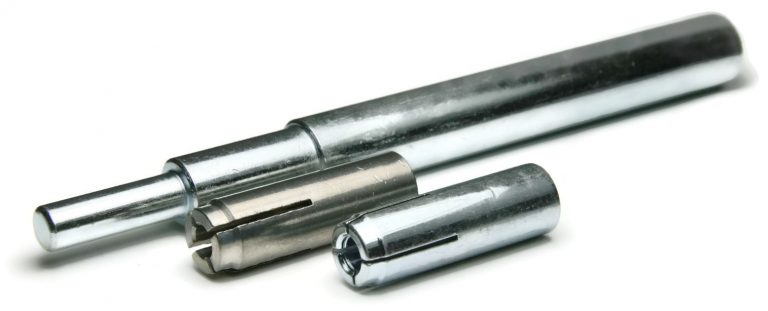Stud Bolt Screw Manufacturing Company for Quality Fasteners and Custom Solutions
Dek . 04, 2024 15:52 Back to list
Stud Bolt Screw Manufacturing Company for Quality Fasteners and Custom Solutions
The Evolution and Importance of Stud Bolt Screw Factories
In the realm of industrial manufacturing, few components play as critical a role as fasteners. Among these, stud bolts and screws are indispensable elements that hold together machinery, structures, and a diverse range of products. As we delve into the theme of stud bolt screw factories, we witness not only the evolution of an essential industry but also its significance in contemporary manufacturing practices.
The Fundamentals of Stud Bolts and Screws
Stud bolts are heavy-duty fasteners commonly used in construction and mechanical applications, characterized by their threaded ends. Unlike regular bolts, which typically come with a head, stud bolts have threads along their length, allowing for efficient use in high-stress situations. Screws, on the other hand, are versatile fasteners that can be used in various applications, from furniture assembly to electronic devices. The choice between using a stud bolt or a screw often depends on the specific requirements of the project, including the material being fastened, the load-bearing capacity needed, and the environmental conditions.
The Rise of Stud Bolt Screw Factories
Historically, the manufacturing of fasteners was a labor-intensive process, relying heavily on manual labor and basic tools. The Industrial Revolution marked a turning point, as factories began to emerge, equipped with machinery that significantly enhanced the production of fastening devices. As industry expanded and the demand for reliable fasteners grew, specialized factories dedicated to the production of stud bolts and screws began to take shape.
These factories implemented assembly line techniques, streamlining the production process. The introduction of automation and computer numerical control (CNC) machines in more recent years has further revolutionized manufacturing. Today’s stud bolt screw factories are characterized by precision-engineered products, high production rates, and reduced waste. The integration of advanced technologies, such as robotics, has not only increased efficiency but also improved safety within the workplace.
Quality Control and Standards
With the rise in production capabilities came an increased emphasis on quality control. Fasteners, especially those used in critical applications like aerospace, oil and gas, and construction, must meet stringent quality standards. Leading stud bolt screw factories adhere to international standards such as ISO, ASTM, and ASME, ensuring that their products are reliable and durable.
stud bolt screw factory

Quality control processes in modern factories involve rigorous testing of materials, as well as the final fasteners. This includes tensile testing, corrosion resistance testing, and fatigue testing to guarantee that these products can withstand the intended loads and environmental conditions. As sustainability becomes a focal point in manufacturing, many factories are also adopting eco-friendly practices, optimizing resource use and minimizing environmental impact.
Customization and Industry Applications
The versatility of stud bolts and screws means they serve various industries, from automotive and aerospace to construction and manufacturing. Each application has unique demands, which has led to a trend in customization. Modern stud bolt screw factories offer a range of options, including different materials (such as stainless steel, carbon steel, and alloys), sizes, threads, and coatings.
For instance, in the oil and gas sector, where equipment operates in extreme conditions, high-strength, corrosion-resistant fasteners are essential. Similarly, in the construction industry, stud bolts that can handle immense loads and withstand environmental stress are crucial. The ability to customize products not only enhances performance but also allows manufacturers to meet client specifications precisely.
The Future of Stud Bolt Screw Factories
As we look toward the future, the stud bolt screw manufacturing industry will likely continue to evolve alongside technological advancements and shifts in market demand. The rise of smart manufacturing, characterized by the Internet of Things (IoT) and data analytics, presents opportunities for factories to optimize production processes in real-time, improve inventory management, and enhance customer service.
Furthermore, as global supply chains become more interconnected, stud bolt screw factories may increasingly shift towards lean manufacturing techniques, reducing waste and increasing responsiveness to market changes. The ongoing development of materials science might also introduce innovative materials that enhance the performance of fasteners even further.
Conclusion
Stud bolt screw factories are at the heart of modern manufacturing, providing the essential components that keep our world together. As these factories continue to evolve, they adapt to new technologies and market needs, ensuring that they remain pivotal players in the industrial landscape. The ability to provide high-quality, customizable fasteners will be crucial in supporting the growth of various sectors, illustrating the enduring importance of this industry in our daily lives.
Latest news
-
Reliable Axle Nuts Supplier | High-Quality Automotive Parts
NewsAug.19,2025
-
Premium Wire Bolts Suppliers | Durable & Reliable Fasteners
NewsAug.18,2025
-
Leading Metric Wood Screw Companies & Manufacturers
NewsAug.17,2025
-
Top Wire Bolts Suppliers - Quality & Durable Fasteners
NewsAug.15,2025
-
Trusted Wire Bolts Company | Quality Fasteners Supplier
NewsAug.14,2025
-
Reliable Wire Bolts Suppliers & Manufacturers for Global Needs
NewsAug.13,2025
